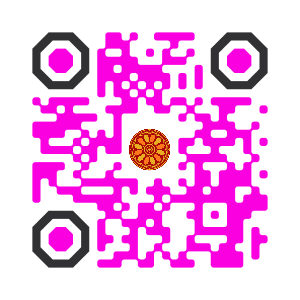
:: International Transaction Journal of Engineering, Management, & Applied Sciences & Technologies
http://TuEngr.com

ISSN 2228-9860
eISSN 1906-9642
CODEN: ITJEA8
FEATURE PEER-REVIEWED ARTICLE
Vol.11(15) (2020) |
-
Mediating Role of Organisational Strategies in Relationship of the Causes and Outcomes of Occupational Stress
 Tehseen Ahmad, Qamar Afaq Qureshi (Department of Public Administration, Institute of Political and Administrative Studies, Gomal University D.I. Khan, KP, PAKISTAN),
Tehseen Ahmad, Qamar Afaq Qureshi (Department of Public Administration, Institute of Political and Administrative Studies, Gomal University D.I. Khan, KP, PAKISTAN),
Nida Habib (Department of Business Administration, Gomal University, D.I. Khan, KP, PAKISTAN),
L.S. Abdullah (General Mechanics Department, Institute of Mechanical Engineering, Lipetsk State Technical University, RUSSIA),
P.A. Krovopuskov (Department of Design and Artistic Processing Materials, Institute of Mechanical Engineering, Lipetsk State Technical University, Lipetsk, RUSSIA).
Disciplinary: Public Administration and Management Sciences.
DOI: 10.14456/ITJEMAST.2020.308
Keywords: Job stress reduction; Individual Stressors; Collective stressors; Khyber Pakhtunkhwa; Group stressors; Organisational Stressors; Extra-Organisational; Judges; Advocates; Stress awareness of judges.
AbstractEveryone has the right to spend his life happily but the question arises, how. The goal of this research is to identify the Mediating role of Organizational strategies in the relationship of causes (Individual stressors, Group stressors, organizational stressors, & Extra-organizational stressors) and outcomes (Depression, Absenteeism, & Trauma, etc.) of occupational stress. This work has applied the qualitative tools of thematic analysis like "argumentation" to analyzed results. For the field study, a questionnaire was used to gather the first-hand view on the topic, using a seven-point interval scale to agree or disagree with the statements to analyze the empirical relationships. Two hundred and fifty-two judges and advocates represented by 18 females and 234 males completed a constructed and standardized questionnaire. The empirical results from the currents study tell that the mediating variable, i.e. organizational strategies plays a very significant role while reducing the level of stress among the employees.Paper ID: 11A15T
Cite this article:
Ahmad, T., Qureshi, Q. A., Habib, N., Abdullah, L.S., Krovopuskov, P.A. (2020). Mediating Role of Organisational Strategies in Relationship of the Causes and Outcomes of Occupational Stress. International Transaction Journal of Engineering, Management, & Applied Sciences & Technologies, 11(15), 11A15T, 1-9. http://doi.org/10.14456/ITJEMAST.2020.308
References:
Ahmad, T., Qureshi, Q. A., Habib, N., & Ullah, I. (2020). Meditational Effects of Personal Strategies in Relationship of Causes and Outcomes of Occupational Stress: A Survey of Judiciary in KP Pakistan. International Transaction Journal of Engineering, Management, & Applied Sciences & Technologies, 11(15), 11A15M, 1-8. DOI: 10.14456/ITJEMAST.2020.301
Awan, K. Z., Qureshi, W., Akram, M., & Shahzad, K. (2014). Mediation role of organizational commitment in the relationships of organizational politics and job involvement and employee performance. Int. J. Acad. Res. Economics and Management Sci, 3(6), 1-21.
Barron, R. M., & Kenny, D. A. (1986). The moderator-mediator variable distinction in social psychological research: Conceptual, strategic, and statistical considerations. Journal of personality and social psychology, 51(6), 1173-1182.
Bashir, U., & Ramay, M.I. (2010). Impact of stress on employees' job performance: A study on the banking sector of Pakistan. International Journal of Marketing Studies, 2(1), 122-126.
Colligan, T. W., & Higgins, E. M. (2006). Workplace stress: Etiology and consequences. Journal of workplace behavioral health, 21(2), 89-97.
Cosio, S. E., Olson, L., & Francis, J. P. (2010). Social support and occupational stress among university employees. Regent University.
Hobfoll, S. E., & Freedy, J. (1993). Conservation of resources: A general stress theory applied to burnout. In W. B. Schaufeli, C. Maslach, & T. Marek (Eds.), Series in applied psychology: Social issues and questions. Professional burnout: Recent developments in theory and research (115-133). Taylor & Francis.
Iqbal, M. (2013). Mediational effect of stress coping strategies between workplace stress and organizational performance: A case study of air traffic controllers of Pakistan. Cent Eur J Immunol, 1, 42-56.
Khan, S., & Khan, R. A. (2017). Chronic stress leads to anxiety and depression. Ann Psychiatry Ment Health, 5(1), 1091.
Manjunatha, M., & Renukamurthy, T. (2017). Stress among Banking Employee-A Literature Review. Int. J. Res. Granthaalayah, 5, 207-213.
Mark, G., & Smith, A. P. (2012). Occupational stress, job characteristics, coping, and the mental health of nurses. British journal of health psychology, 17(3), 505-521.
Parveen, A., & Inayat, S. (2017). Evaluation of factors of stress among Nursing Students. Advanced Practices in Nursing, 2(2), 1000136.
Rahman, M. H., Kamruzzaman, M., Haque, M. E., Al Mamun, M. A., & Molla, M. I. (2015). Perceived Intensity of Stress Stressors: A Study on Commercial Bank in Bangladesh. Asian Business Review, 3(3), 40-43.
Warraich, U., Ahmed, R., Ahmad, N., & Khoso, I. (2014). Impact of stress on job performance: An empirical study of the employees of private sector universities of Karachi, Pakistan. Research Journal of Management Science, 3(7), 14-17.
Other issues:
Vol.11(14)(2020)
Vol.11(13)(2020)
Vol.11(12)(2020)
Vol.11(11)(2020)
Vol.11(10)(2020)
Vol.11(9)(2020)
Vol.11(8)(2020)
Vol.11(7)(2020)
Vol.11(6)(2020)
Vol.11(5)(2020)
Vol.11(4)(2020)
Vol.11(3)(2020)
Vol.11(2)(2020)
Vol.11(1)(2020)
Archives
Call-for-Papers
Call-for-Scientific Papers
Call-for-Research Papers: ITJEMAST invites you to submit high quality papers for full peer-review and possible publication in areas pertaining engineering, science, management and technology, especially interdisciplinary/cross-disciplinary/multidisciplinary subjects.
To publish your work in the next available issue, your manuscripts together with copyright transfer document signed by all authors can be submitted via email to Editor @ TuEngr.com (no space between). (please see all detail from Instructions for Authors)
Publication and peer-reviewed process:
After the peer-review process (4-10 weeks), articles will be on-line published in the available next issue. However, the International Transaction Journal of Engineering, Management, & Applied Sciences & Technologies cannot guarantee the exact publication time as the process may take longer time, subject to peer-review approval and adjustment of the submitted articles.